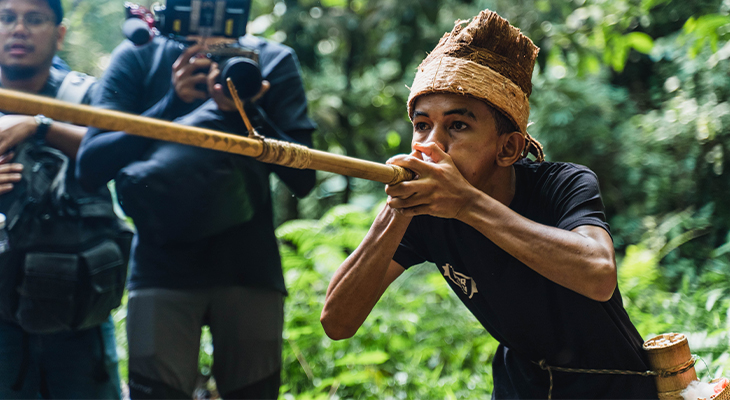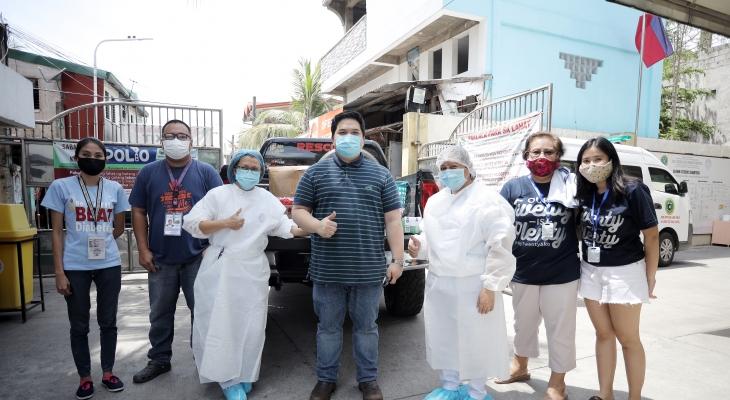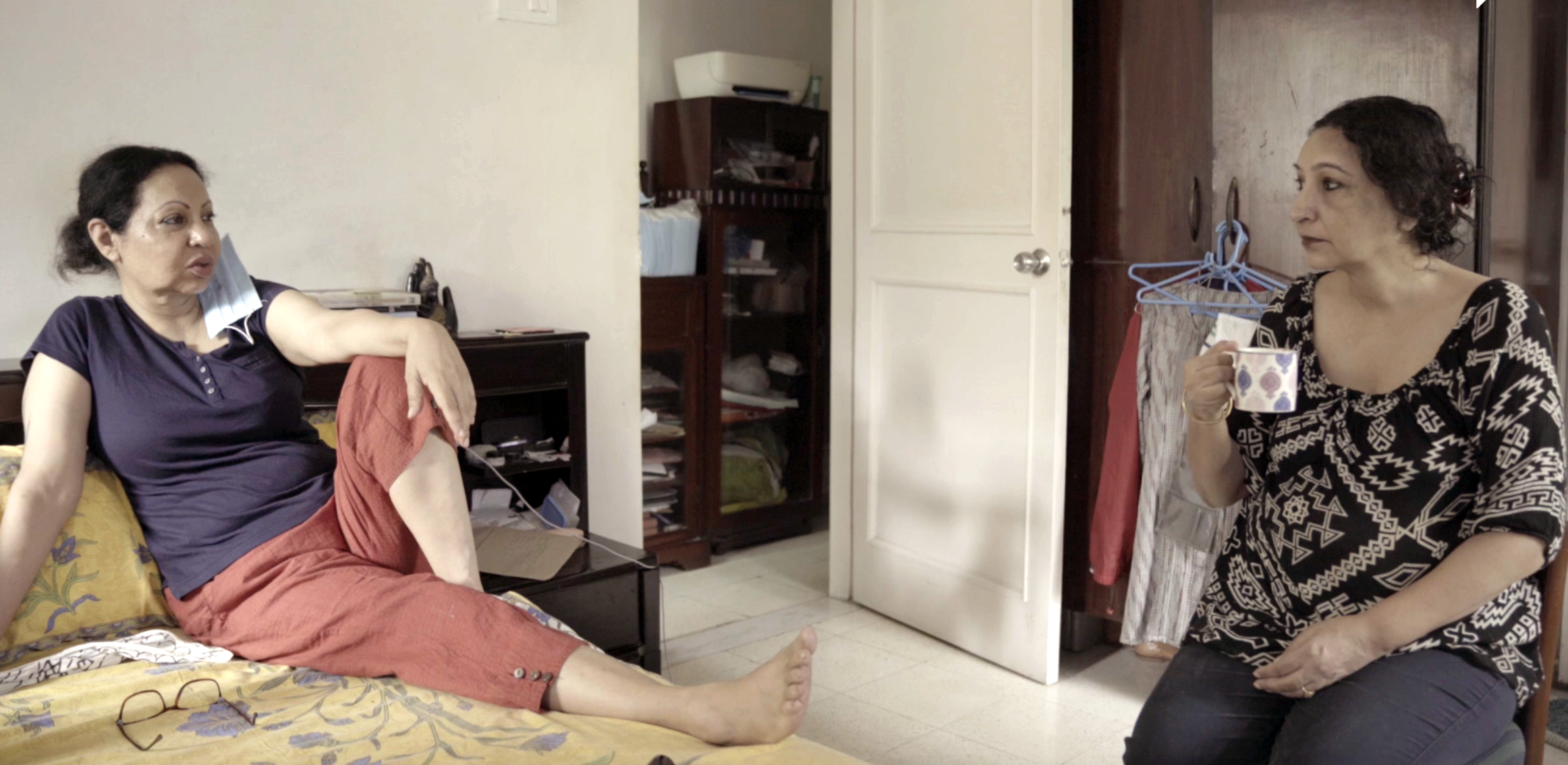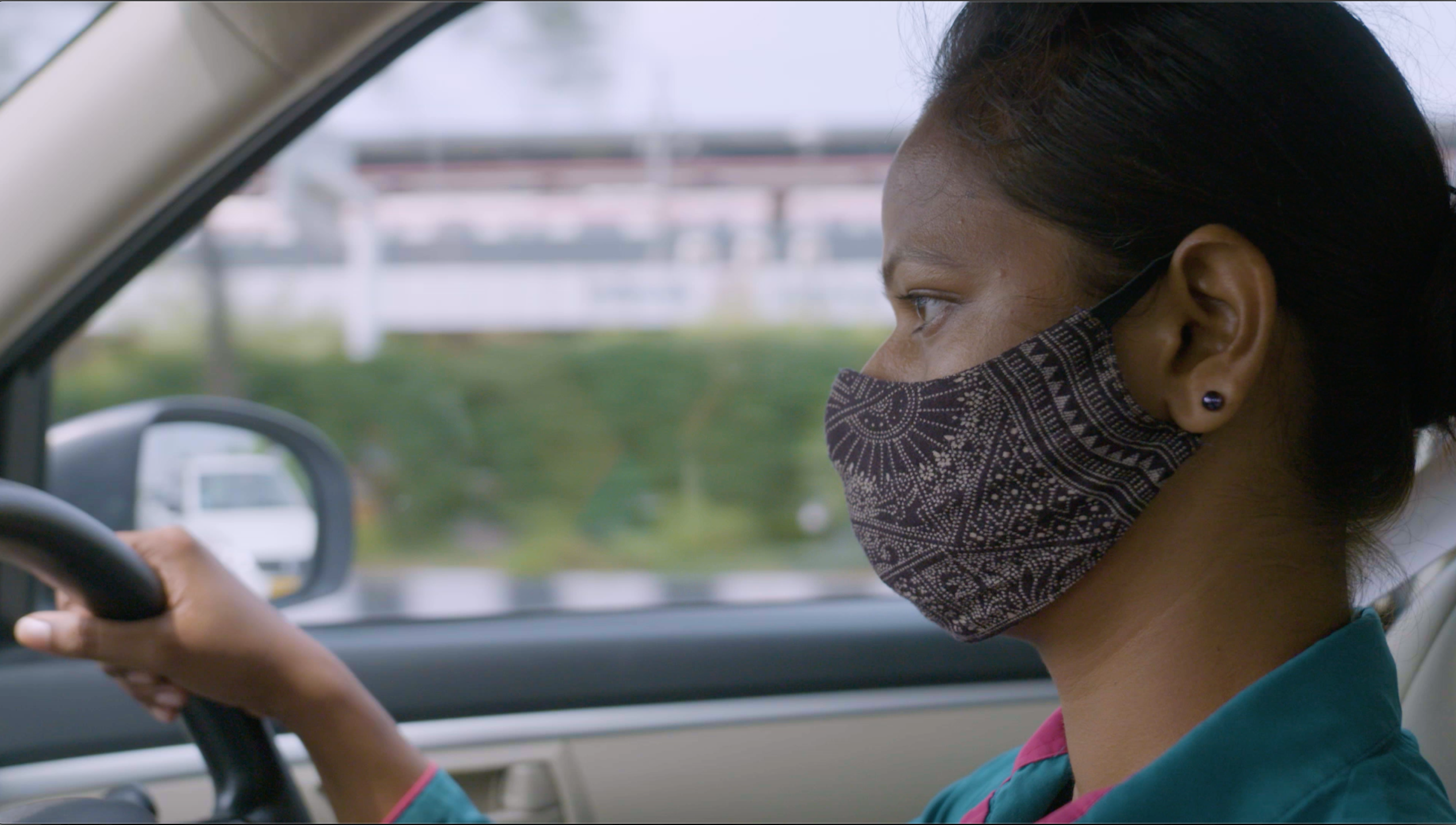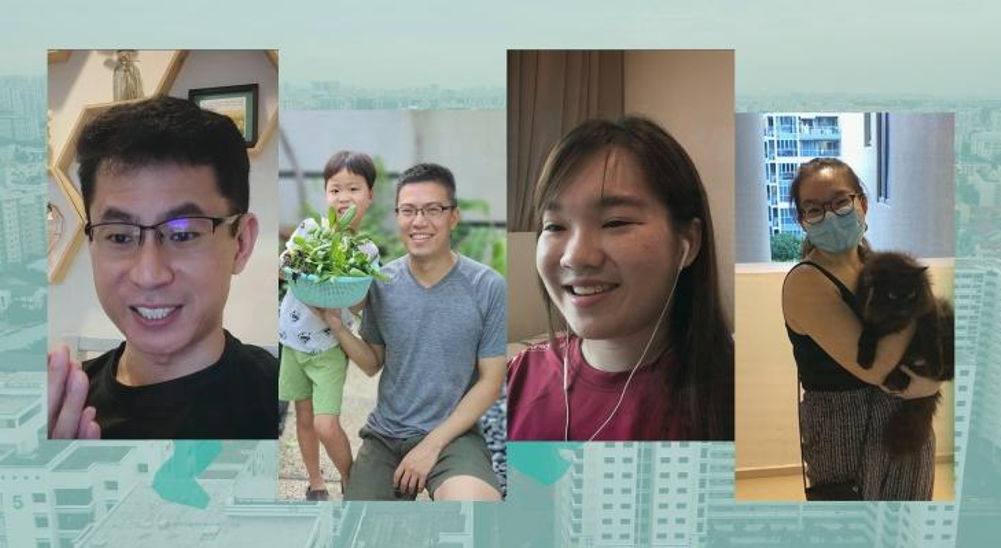The Heart at Play Takes Play to Heart
Instructions come fast and furious over blaring music. “Raise your arms. Stretch them to your left and right.” “Step forward.” “Don’t forget to smile.”
Patricia Rivera is leading some 30 students in dance movement therapy (DMT) classes with The Heart at Play Foundation (THP). The free, weekly two-hour sessions in Manila, Philippines, are for children born with intellectual disabilities from marginalised families.
The participants don’t break a sweat; an intense look of concentration on their faces. They move to the thumping beat, holding onto a piece of rope decorated with brightly coloured flags. Each child is flanked by a volunteer or caregiver, who is without a disability.
Patricia started teaching the classes in 2011, after being inspired by her mother Ana Rivera, a dance specialist, who recognised the therapeutic quality of dance.
Together, they co-founded the NGO to eliminate the stigma and stereotypes surrounding people with special needs (PWSN), who are often discriminated against and excluded from mainstream society.
THE ROPE OF HOPE AGAINST STIGMA
Every Saturday, children with different conditions, such as Down syndrome, cerebral palsy and autism, gather with caregivers and volunteers in a hall on the grounds of a church in Quezon City to practise their moves.
Says the co-director, “[My mum and I] were able to devise [an intervention] tool we called, Rope of Hope, or in Tagalog, ‘lubid ng pag-asa’.
“The Rope of Hope connects our beneficiaries to the healing impact of dance movement therapy with volunteers from the [non-disabled] community.”
And even if their attention wanders, Patricia explains, “as long as they are holding on to the rope for the duration of the session, they can be participative. We have captured their attention, and the behaviour leads them to learn the dance.”
According to her, combining the use of the patented Rope of Hope and DMT offers a holistic form of healing that merges the artistic form of dance with behavioural and cognitive sciences.
HEALING THROUGH DANCE
And the results speak for themselves. Long-time participants have started to develop life skills that encourage independent living, like dressing themselves or helping out at home. Learning the dance movements has also developed self-confidence, agility and physical co-ordination. While mothers say their children have become more sociable and responsive.
THP has made an impact in other powerful ways too, like creating a safe and supportive community for these families and their children. Patricia says caregivers even call each other if they need help with child-sitting or to run errands.
“We are grateful, because we are like a family who help each other. If not for [The Heart at Play Foundation], we would just be staying at home,” says Marie Tan, whose son, Hart attends the classes.
When the DMT session ends, a queue forms for a delicious lunch that THP provides and the mothers help to cook each week.
Six-year-old Hart, who lives with Down syndrome, bounces up, a cheeky grin spread across his cherub face. He bursts into song and performs a few hip hop moves, ending with his arms crossed over his chest, head tilted back, his chin held high.
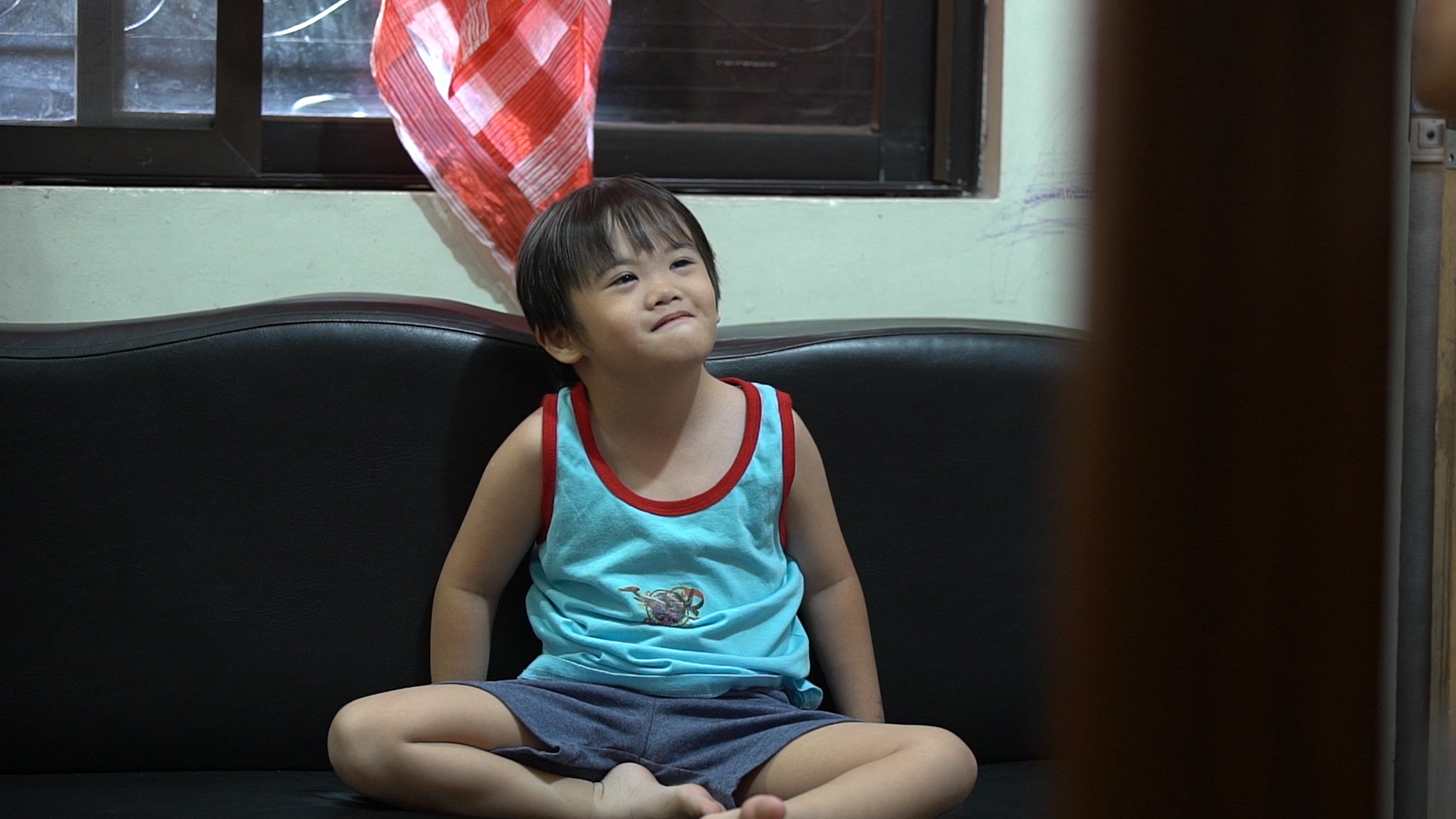
Marie says Hart wasn’t always so convivial: “He was not that friendly and was shy. His balance was poor, so he couldn’t raise his foot… and when he runs, he looks like he will stumble.”
“I heard about Heart at Play from a friend,” says Marie. “We tried it since Hart likes to dance. At first, he was shocked to see so many people, and he had to learn dance movements immediately.”
According to the Down Syndrome Association of the Philippines, Inc, a Filipino is born with Down syndrome every four hours. This works out to more than 100,000 families in the country living with a person with Down syndrome.
The life-long condition causes physical and mental delays, and sometimes chronic health issues.
For instance, Hart’s eyesight, hearing and thyroid have been affected. And he was also born with a hole in his heart, which closed when he was two years old.
Another participant, 16-year-old Angela, has global development delay. It is a term used to describe children who take longer to develop in certain areas, including learning to walk and talk, relating to people, and intellectual functioning.
Angela’s mother, Mel Galano, says her daughter enjoyed the sessions when they joined, and so they stayed. Their perseverance has paid off.
“Before Angela couldn’t grip objects, because her hands were too weak. Even holding a pencil was hard for her,” explains Mel. “Now, she can write on her own. Her penmanship is beautiful. Her self-confidence was boosted and she is not afraid of people anymore.”
MOVING TO THE BEAT OF CHANGE
On this particular day, there is a heightened buzz in the air. The children are rehearsing for an upcoming public performance.
The benefit concert will help raise funds to pay for operational costs of the DMT classes. THP also gives families a transport stipend so they don’t miss sessions if they cannot pay for travel.
Marie exclaims with excitement, “Hart is performing on his own. Before it used to be the both of us. He is confident he can do it. He no longer fears people watching him. He became a happier kid.”
For the long-term, Patricia says the goal is to hire more staff, including professional specialists for PWSN.
For now, though, THP continues to raise the (musical) bar on the power of dance to touch the lives of disadvantaged families.
For Jeanne Barretto, it has meant hearing her 16-year-old daughter Ariane, who has Down syndrome, speak for the first time.
“Patty [Patricia] asked if there is something we wish for Ariane to do,” recalls Jeanne. “I told her if I can hear Ariane say, ‘Mama, I love you,’ that will bring joy to me.
“A month ago, Ariane was able to say, ‘Papa, Mama, I love you.’ My husband and I are so happy that Ariane was able to talk, finally.”
LET’S TALK ABOUT IT:
How can we better integrate people with special needs into society and create a more inclusive community for them and their families?
About The Heart at Play Foundation
Contributors
Director
Producer
Camera & Editor
Camera
Sound
Photography
Lee Capati
Writer
Executive Producer



